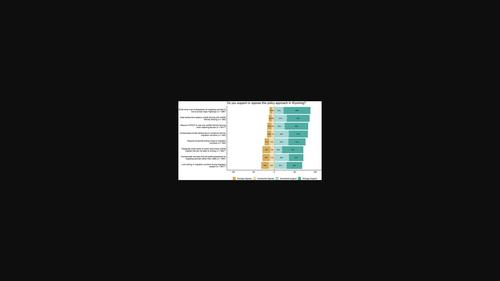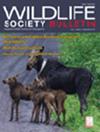使走廊保护永久化:利用公众认知推进大型野生动物管理
IF 1.5
4区 环境科学与生态学
Q3 Environmental Science
引用次数: 0
摘要
自然和人为的干扰可能会威胁到大型野生动物的迁徙。迁徙通道跨越了生物物理和司法障碍,这给有效的物种保护带来了挑战。尽管美国西部山间走廊保护获得了2018年秘书命令的支持,该命令指示美国内政部提高大型猎物冬季范围内的栖息地质量,并确定美国西部的优先迁徙走廊,但次区域尺度上的公众支持和积极政策仍然两极分化。我们对美国怀俄明州的登记选民进行了调查,以评估他们对保护大型动物迁徙的土地和栖息地的看法和偏好。我们使用在线焦点小组和电话调查来评估对保护移民政策的具体支持态度和意见,利益集团的可信度,以及保护信息框架的有效性。我们的研究结果表明,怀俄明州的选民支持对人类和大型动物都有利的政策,与联邦机构相比,他们对州机构的信任度更高,并且发现以人为本的利益信息最引人注目。我们评估了不同人群的信仰,比如政治意识形态,但没有发现明显的差异。我们的工作提供了对受严重影响的公众对大型动物走廊保护的动态观点和偏好的见解,这有助于未来的研究和参与,以推进大型动物管理。本文章由计算机程序翻译,如有差异,请以英文原文为准。

Perpetuating corridor conservation: Using public perception to advance big game management
Natural and anthropogenic disturbances may threaten big game migration. Migration corridors span both biophysical and jurisdictional barriers, which create challenges for effective species conservation. Though corridor conservation in the Intermountain West of the United States gained traction with the 2018 Secretarial Order that directed the U.S. Department of the Interior to enhance habitat quality within big game winter ranges and identify priority migration corridors in the western U.S., public support and active policies at sub regional scales remain polarized. We surveyed registered voters in Wyoming, USA, to assess perspectives and preferences to conserve land and habitat for big game migration. We used online focus groups and phone surveys to assess attitudes and opinions specific to support for policies that conserve migrations, the believability of interest groups, and the efficacy of conservation messaging frames. Our results show that Wyoming voters favored policies that benefit both humans and big game, associated higher credibility with state agencies than federal agencies, and found messages that specify human-centered benefits most compelling. We assessed beliefs across demographics, such as political ideology, but found few significant differences. Our work provides insight into dynamic perspectives and preferences for big game corridor conservation among critically affected public, which can aid future research and engagement to advance big game management.
求助全文
通过发布文献求助,成功后即可免费获取论文全文。
去求助
来源期刊

Wildlife Society Bulletin
BIODIVERSITY CONSERVATION-
CiteScore
2.10
自引率
13.30%
发文量
0
期刊介绍:
The Wildlife Society Bulletin is a journal for wildlife practitioners that effectively integrates cutting edge science with management and conservation, and also covers important policy issues, particularly those that focus on the integration of science and policy. Wildlife Society Bulletin includes articles on contemporary wildlife management and conservation, education, administration, law enforcement, and review articles on the philosophy and history of wildlife management and conservation. This includes:
Reports on practices designed to achieve wildlife management or conservation goals.
Presentation of new techniques or evaluation of techniques for studying or managing wildlife.
Retrospective analyses of wildlife management and conservation programs, including the reasons for success or failure.
Analyses or reports of wildlife policies, regulations, education, administration, law enforcement.
Review articles on the philosophy and history of wildlife management and conservation. as well as other pertinent topics that are deemed more appropriate for the Wildlife Society Bulletin than for The Journal of Wildlife Management.
Book reviews that focus on applied research, policy or wildlife management and conservation.
 求助内容:
求助内容: 应助结果提醒方式:
应助结果提醒方式:


